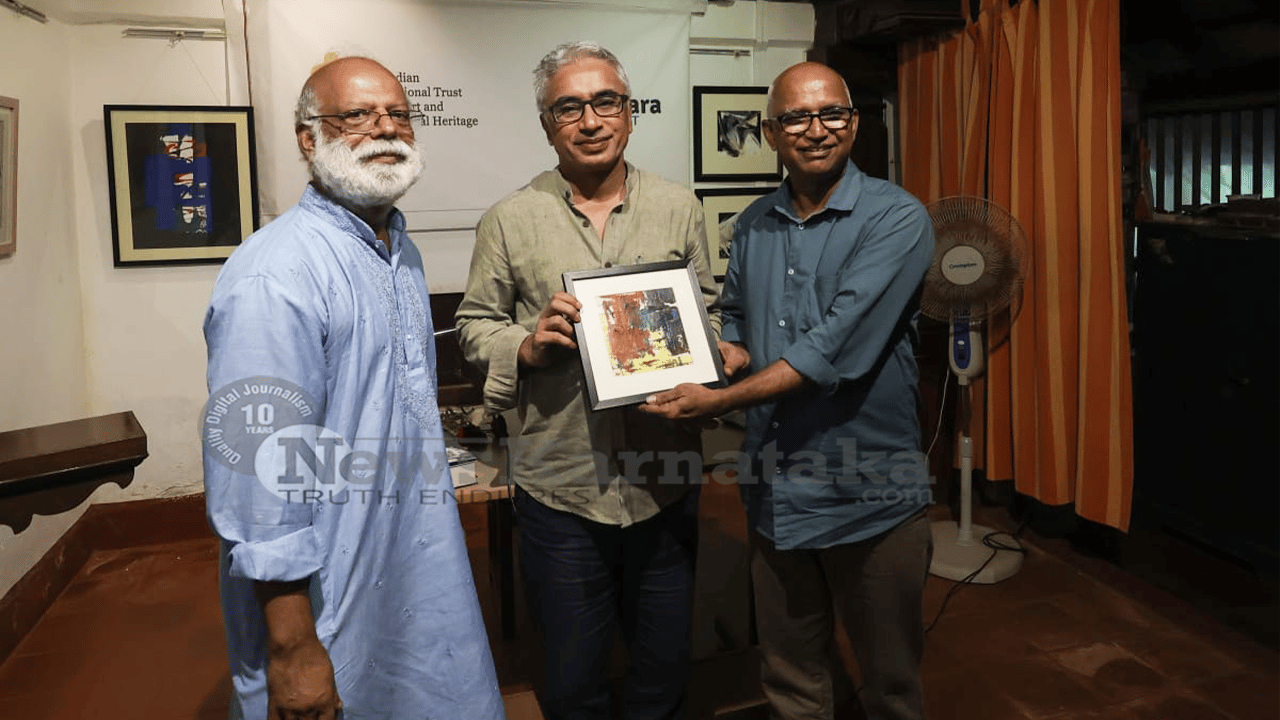Harnessing Unused Resources for Sustainable Urban Development | Building a More Inclusive Future is very important | A conversation with Subash Chadra Basu, President of Art Kanara Trust
It was a casual conversation with Master Architect Subash Chandra Basu, President of Art Kanara Trust. Several critical issues regarding urban development, environmental conservation, and community welfare were discussed in a flow. The conversation shed light on the pressing need for sustainable urban development practices, particularly in the utilization of unoccupied resources. Here’s a comprehensive editorial comprehension to summarize the conversation and to propose few viable solutions.
Give attention to the Environmental Impact of Development:
Sri Subash Chandra Basu emphasized the adverse effects of urban development on the environment, citing the destruction of nature and natural habitats in the pretext of development projects. He stressed the importance of sustainable development practices to mitigate environmental damage. It is imperative to balance development with environmental conservation. Creating roads everywhere has a modus operandi. Initially it goes with a mud road and few petty shops and eventually few houses appear behind the petty shops. Slowly concrete buildings come. Every wrong practice is done in the name of development. People who are hand in glow with the authorities are the beneficiaries. This has to change. People at responsible positions should foresee development for everyone and make sure that the so called development is sustainable and really progressive in all aspects and dimensions.

Addressing the Housing Crisis:
One of the key issues discussed was the exorbitantly aggravated housing crisis because of rural-to-urban migration. Basu highlighted the existence of numerous unoccupied houses in both urban and rural areas. These unused resources could play a significant role in addressing the housing problem if utilized effectively. Here is a road map.
Government and NGO Intervention:
The conversation underscored the need for government intervention to harness unoccupied houses for sustainable urban development. Basu proposed the involvement of NGOs in monitoring and facilitating this process, ensuring transparency and accountability. By working together, governments, NGOs, and communities can effectively address the housing crisis. Houses with less occupancy need to be identified. Find out the houses that require care and support of various kinds. Identify Community service providers. Check the possibility for developing viable arrangements between the residents and the service providers. Who are the community service providers? It can be doctors, nurses, to all kinds of care givers and care takers. Sometimes, just by presence, we can support the elderly people.
Employment and Social Welfare:
A crucial aspect of sustainable urban development is the creation of employment opportunities and social welfare programs. Basu suggested employing unemployed youth for social work, utilizing student forces, and creating temporary employment opportunities. These initiatives not only address unemployment but also cater to the needs of the community.
The German Model: Empowering Communities for Sustainable Development
During the conversation, Basu drew attention to the successful implementation of a community support system in Germany that he could see on his stay over there. He shared the example of unemployed youth being engaged in social work, particularly in supporting elderly residents. In this model, unemployed individuals are assigned duties such as checking on the well-being of elderly community members, providing assistance with medication, food, and other necessities. This not only provides employment opportunities but also addresses the social needs of the community. By replicating such models, communities can empower themselves to address local challenges, fostering sustainable development from within. The German model serves as an inspiring example of how community involvement can drive positive change and build more resilient and inclusive urban environments.
Architectural Perspective:
From an architectural standpoint, Basu emphasized the role of community architects in local development, restoration, and renovation. He highlighted the potential of continuous employment and community development through restoration and renovation projects. By involving local communities in the development process, we can create more inclusive and sustainable urban spaces.
Community Involvement and Maintenance:
Community involvement is crucial for the success of any sustainable development initiative. Basu stressed the importance of community participation in maintaining and utilizing unoccupied buildings. He proposed the establishment of a community support system to address the housing crisis effectively. By empowering communities, we can build more resilient and sustainable urban environments.
The conversation with Subash Chandra Basu highlighted the urgent need for sustainable urban development practices. By harnessing unused resources, particularly unoccupied buildings, and involving the community, we can address the housing crisis, mitigate environmental damage, and foster inclusive development. It is imperative for governments, NGOs, and communities to work together towards building a more sustainable future. Let us all join us in advocating for sustainable urban development practices. Let’s work together to harness unused resources, address the housing crisis, and build resilient communities for a better tomorrow.
About Subash Chandra Basu:
Subash Chandra Basu is a Master Architect and the President of Art Kanara Trust. He is a Professor in Architecture and also the Convener of INTACH Mangalore Chapter. With decades of experience in architecture and community development, Basu is a leading voice in sustainable urban development practices. His insights and expertise are invaluable in shaping a more sustainable future for our cities and villages.





